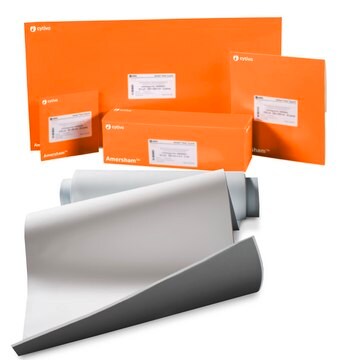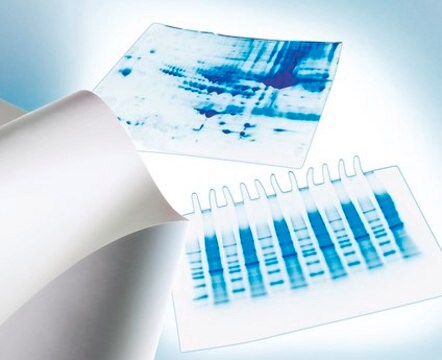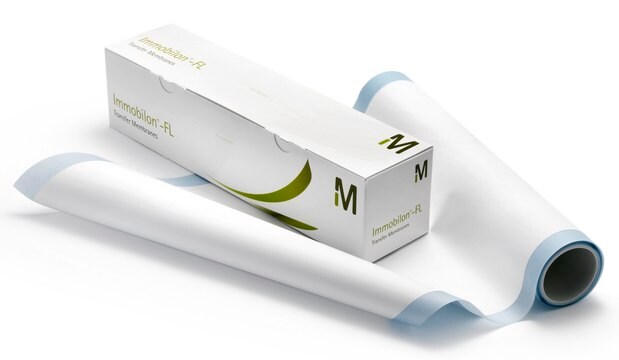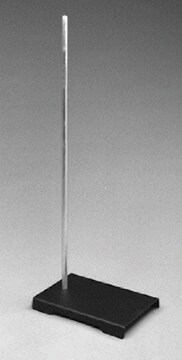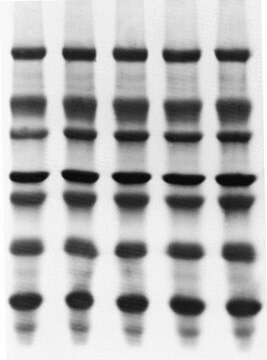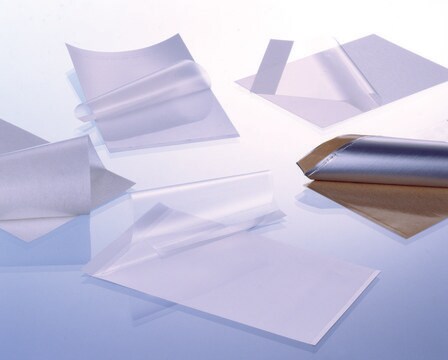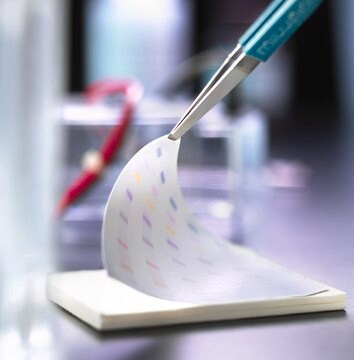03010040001
Roche
PVDF Western Blotting Membranes
roll W × L 30 cm × 3.00 m, roll of 1, pore size 0.2 μm
Synonym(s):
western blotting membranes, pvdf
Sign Into View Organizational & Contract Pricing
All Photos(1)
About This Item
UNSPSC Code:
41105339
NACRES:
NB.22
Recommended Products
material
white PVDF membrane (hydrophobic)
Quality Level
packaging
roll of 1
manufacturer/tradename
Roche
roll W × L
30 cm × 3.00 m
pore size
0.2 μm pore size
shipped in
ambient
storage temp.
room temp
General description
PVDF Western Blotting Membranes are hydrophobic, microporous, polyvinylidene difluoride (PVDF) membranes with a pore size of 0.2μm. The PVDF Western Blotting Membranes are ideal for western and dot blots. The high binding capacity, high mechanical strength, and chemical resistance of the PVDF membrane makes it specifically useful for protein blotting. The combination of strong sample retention and low background binding generates excellent signal-to-noise ratios in colorimetric and chemiluminescent detection. The primary binding mechanism includes electrostatic and hydrophobic nature.
Adsorption: Goat IgG: 294μg/cm2; BSA: 131μg/cm2; insulin: 85μg/cm2
Adsorption: Goat IgG: 294μg/cm2; BSA: 131μg/cm2; insulin: 85μg/cm2
Application
PVDF Western Blotting Membranes has been used in western blot, for transferring proteins for sequencing.
Note: Tested for use with Lumi-Light western blotting substrate or Lumi-LightPlus western blotting substrate.
Note: Tested for use with Lumi-Light western blotting substrate or Lumi-LightPlus western blotting substrate.
Quality
Each lot is function tested (dot blot).
Other Notes
For life science research only. Not for use in diagnostic procedures.
Certificates of Analysis (COA)
Search for Certificates of Analysis (COA) by entering the products Lot/Batch Number. Lot and Batch Numbers can be found on a product’s label following the words ‘Lot’ or ‘Batch’.
Already Own This Product?
Find documentation for the products that you have recently purchased in the Document Library.
Customers Also Viewed
Changcun Zhang et al.
Oncology letters, 7(5), 1689-1694 (2014-04-26)
MicroRNA-34a (miR-34a) is a tumor suppressive microRNA, which induces G1 arrest, apoptosis and senescence by repressing the expression of multiple oncogenes. This study aimed to investigate the biological function and molecular mechanisms of miR-34a in human renal cell carcinoma (RCC)
R M Vejborg et al.
Journal of applied microbiology, 105(1), 141-150 (2008-02-27)
We have recently found that preconditioning of stainless steel surfaces with an aqueous fish muscle extract can significantly impede bacterial adhesion. The purpose of this study was to identify and characterize the primary components associated with this bacteria-repelling effect. The
Our team of scientists has experience in all areas of research including Life Science, Material Science, Chemical Synthesis, Chromatography, Analytical and many others.
Contact Technical Service